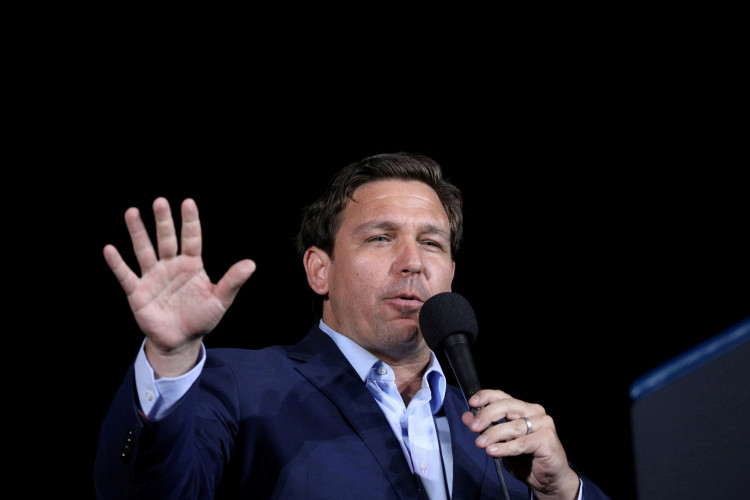The Florida Department of Education must clarify the controversial 2022 parental rights law, branded as "Don't Say Gay" by its critics, under a settlement reached Monday that upholds a key policy of Governor Ron DeSantis's administration. Both the DeSantis administration and the group of LGBTQ+ advocates who filed the lawsuit claimed victory in the settlement, which resolves a two-year-old federal lawsuit alleging that the measure "is an unlawful attempt to stigmatize, silence, and erase LGBTQ people in Florida's public schools."
Under the agreement, the state must clarify the law's scope to schools across Florida, ensuring that it does not prohibit references to LGBTQ+ persons, couples, families, or issues in literature or classroom discussions. The law, which has since been expanded, prohibits teachers from leading classroom lessons on gender identity or sexual orientation for students in kindergarten through third grade and bans such lessons for older students unless they are "age-appropriate or developmentally appropriate."
Officials with Governor DeSantis heralded the agreement as a "major win" against "activists and extremists" who fought the "Parental Rights in Education" law. "We fought hard to ensure this law couldn't be maligned in court, as it was in the public arena by the media and large corporate actors," Ryan Newman, general counsel for the DeSantis administration, said in a statement. "We are victorious, and Florida's classrooms will remain a safe place under the Parental Rights in Education Act."
The group that filed the lawsuit, which included the New York-based firm Kaplan Hecker & Fink LLP and the National Center for Lesbian Rights on behalf of groups Equality Florida and Family Equality, argued that Florida's parental rights law violates the First and 14th Amendments to the United States Constitution and federal Title IX rules. They attacked the "vagueness" in the legislation, alleging that "nobody knows exactly what the statutory language covers."
The lawsuit was initially dismissed, but amid an appeal that has lasted about one year, the group filed an agreement Monday with the U.S. Court of Appeals for the 11th Circuit. This deal, according to the group, ensures the law will be "applied neutrally and is no license to discriminate against or erase LGBTQ+ families."
As part of the settlement, the state Department of Education must tell school districts that the law prohibits "classroom instruction" on sexual orientation or gender identity, including heterosexuality, and that it would be a violation to instruct that heterosexuality is superior to other sexualities. The agreement also states that the law does not prohibit "instruction or intervention against bullying" based on sexual orientation or gender identity or the removal of safe space stickers, which some districts have done.
The group that sued the state claimed the settlement "effectively nullifies the most dangerous and discriminatory" pieces of the law. "For nearly two years, Florida's notorious 'Don't Say Gay' law has spawned a disturbing wave of fear, anxiety, and confusion," said Roberta Kaplan, lead counsel for the group that challenged the law. "By providing much-needed clarity, this settlement represents a major victory for the many thousands of LGBTQ+ students, teachers, parents, and their allies throughout Florida."
Florida's parental rights law, currently prohibiting teachers from leading instruction on gender identity and sexual orientation to pre-K through grade eight students, was expanded in 2023 to restrict the usage of pronouns in schools. Under a separate Board of Education rule, teachers run the risk of losing their educator credentials for leading instruction on those topics to students through 12th grade.
These policies are a key part of Florida's attempt to root out traces of liberal "indoctrination" in local schools, particularly centered on lessons and books about race and sexuality. Republicans contend the laws are necessary to ensure the state's youngest students learn about sexual orientation and gender identity from their parents and not at school.
As the settlement clarifies the scope and meaning of the parental rights law, both sides claim victory in the ongoing debate over the role of LGBTQ+ issues in Florida's public education system. While the DeSantis administration maintains that the law will protect students from "radical gender and sexual ideology," LGBTQ+ advocates see the settlement as a step towards ensuring that the law is not used to discriminate against or erase LGBTQ+ families and individuals in the state's classrooms.






